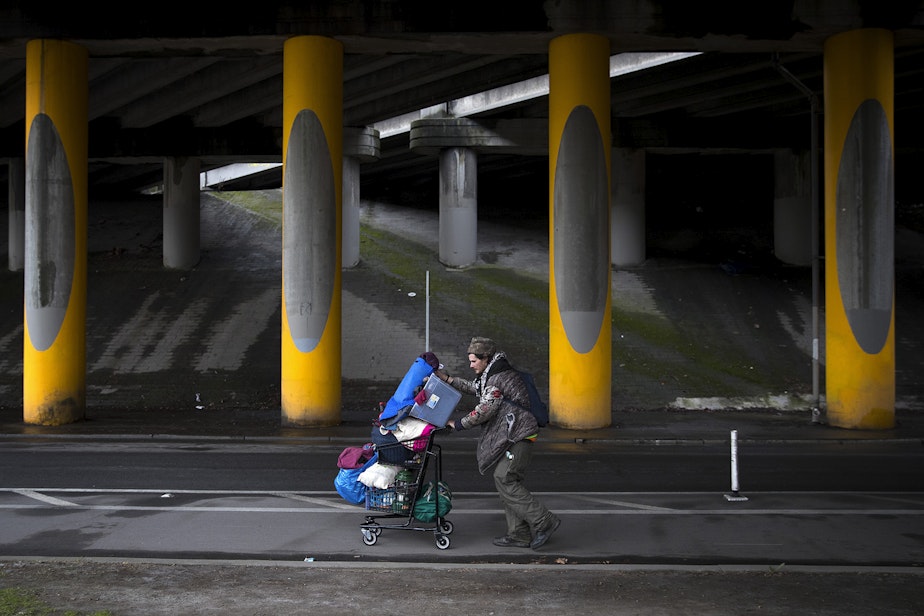A new $1.6B proposal to house thousands experiencing homelessness in King County

As the economic fallout from the pandemic threatens to push more people into homelessness, a new proposal aims to house thousands of people who are chronically homeless in King County over a five-year span.
The proposal comes from the Third Door Coalition, a group of businesses, homeless advocates, nonprofits and academics.
The aim is to create enough units of housing with supportive services on site for 6,500 people who have experienced homelessness in the county for long periods of time, often dealing with things like a physical disability or substance use disorder.
To do that, the group wants businesses and government at the local, county and state level to get involved.
“We’re calling for a public-private partnership to establish $1.6 billion in capital to bring supportive housing to scale in our region,” Sara Rankin said at an online press conference Monday. Rankin is the director of the Homeless Advocacy Rights Project at Seattle University and a co-chair of the coalition.
“This sort of partnership recognizes that especially now, in the grips of this pandemic, government alone cannot end homelessness,” Rankin said.
The proposal released Monday calls on business leaders to chip in 40% of the needed funds, though the mechanism for contributing is not explicitly noted in the plan. It also calls on Washington state to contribute 20% of funding, with 30% coming from King County and the remaining 10% from cities.
The plan partially seeks land use code changes and regulatory exemptions to lower the cost of building units. Some members of the Seattle City Council and state Legislature have already thrown their support behind the proposal.
The coalition’s plan focuses on housing people who are chronically homeless and sleeping outside. This only represents a small portion of the overall homeless population, but they’re often the most visible and potentially vulnerable.
“And they are, as a result of that vulnerability, among the most costly to remain homeless,” Rankin said.
Rankin said it costs less to provide permanent supportive housing for people who have been chronically homeless – housing where they have access to services on-site and pay 30% of their income, whatever it is, to rent – than to have them cycle through hospital beds and jails.
Permanent supportive housing is widely recognized as an effective intervention.
According to the National Alliance to End Homelessness, this kind of housing has a 98% long-term rate of keeping people housed.
Chad Mackay is the CEO of Fire and Vine hospitality and a co-chair of the coalition. He said their plan looks to increase accountability and transparency, and allow investment in innovative and cost-effective options to increase the number of units available.
As businesses look to what’s next, Mackay is urging them to get involved in solutions around homelessness.
“We have to rebuild this economy that relies on tourism, conventions, travel,” Mackay said.
“It behooves us to rebuild our region by solving the chronic homelessness because that is something that’s been divisive, costly and inhumane.”
Now that the plan has been released, it remains to be seen how much traction it will garner.




